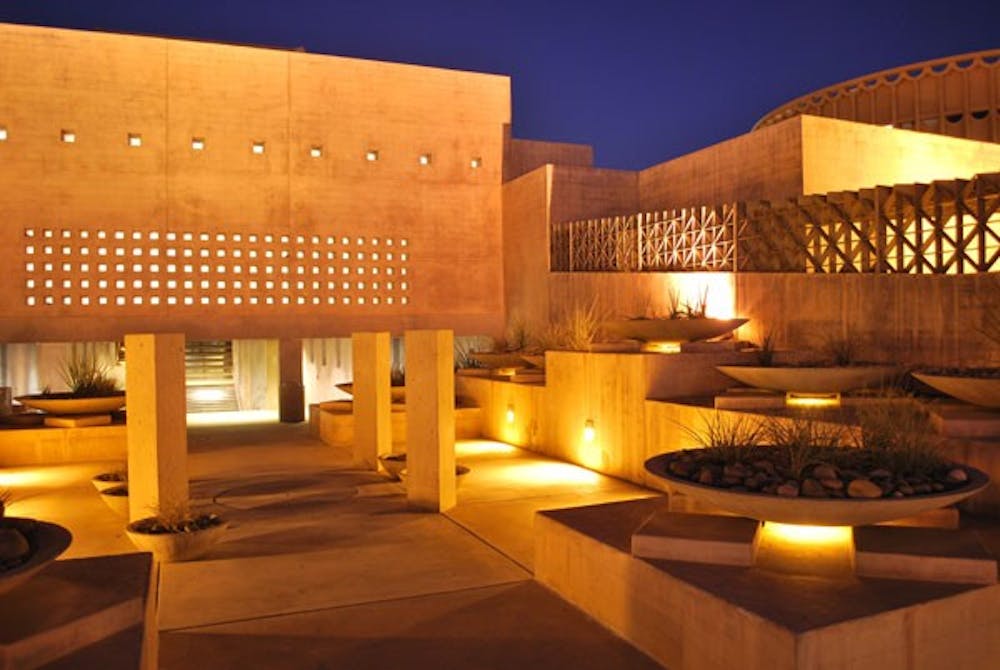ASU’s Herberger Institute for Design and the Arts will introduce a new degree program this fall that enables students to customize their degree path.
The program, the Digital Culture Initiative, addresses the idea of expanding social media with creative, social and technological approaches. The program will train students to be problem solvers within today’s evolving culture.
The network of digital culture courses spans across the Herberger Institute’s seven schools, as well as the University’s engineering, liberal arts, business, education and journalism schools.
Thanassis Rikakis, director of the Herberger Institute School of Arts, Media and Engineering, said this is the first time ASU has created such an integrated and specialized curriculum.
“This program works like a social network centered around a problem, with courses that connect and allow structures to emerge,” he said.
Adriene Jenik, director of the School of Art, said digital culture is really a medium in itself, shaping how we are learning with imagination functions.
“The program is not strictly mapping out a path exactly from ‘A’ to ‘B’ to ‘C’,” she said. “It involves an intersecting set of skills, aptitudes and work processes that really can prepare us for new developing fields.”
Digital culture courses have been created by faculty from six different colleges, each connected by common proficiencies, he said.
“It is really a pretty provocative experiment from an educational standpoint,” Jenik said. “We are taking some of the best of a number of different course offerings and combining them into a degree.”
Jacob Pinholster, assistant professor for the School of Theater and Film, said the program is a centralized place for animation, design and informatics, a field that integrates social and computer sciences.
“They are all linked together in a way that is revolutionary,” he said.
Any one part of the degree will have the ability to qualify for more classes that have not been available previously, Pinholster said.
“There is an opportunity for students to truly make a meaningful link between classes that [aren’t] available in other exploratory majors,” he said. “Students are going to be able to work in a field that might not exist now but will in the future.”
A new facility dedicated specifically to the Digital Culture Initiative is also set to open in January 2011, Rikakis said.
Besides the structural network of the program, there was a need for a physical network where students and faculty could work together, he said.
“The facility will attract students from all walks of life,” he said.
The Digital Culture Initiative will launch in the fall semester with an estimated first class size of about 80 to 100 students, Rikakis said.
“My plan is that three years from now we will have about 250 majors in digital culture and about 150 in minor and certificates,” he said.
Reach the reporter at amoswalt@asu.edu





